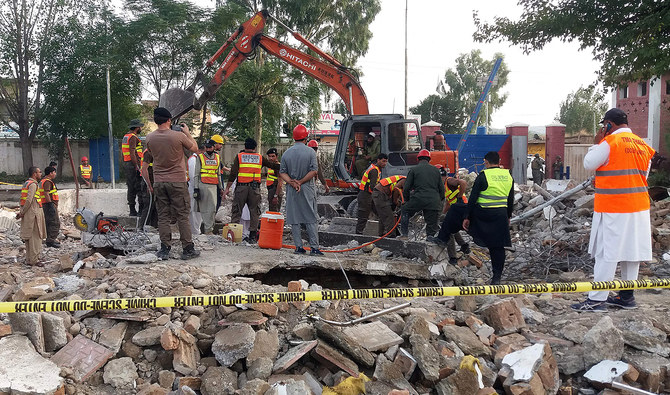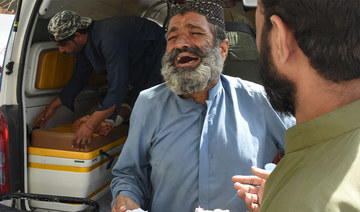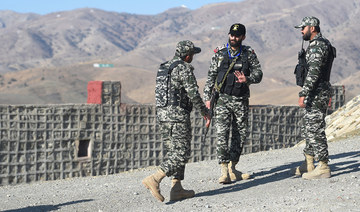RIYADH: A number of Arab states condemned “treacherous” terror attacks in Pakistan that killed as many as 57 people so far and shook the country on Friday.
The attack in Mastung was the deadliest with over 50 people at a mosque where worshippers were commemorating the birthday of Prophet Muhammed. The second attack, at a mosque in Khyber Pakhtunkhwa, killed five and trapped scores under rubble after the roof collapsed.
The Saudi foreign ministry condemned the bombings as “cowardly terrorist attacks,” and reaffirmed the Kingdom’s firm position in the renunciation of “violence and terrorism,” and expressed solidarity with Pakistanis. The ministry statement offered Saudi Arabia’s sincere condolences to the families of the victims and wished the injured a speedy recovery.
Similarly, the UAE condemned the criminal acts, and reiterated its permanent rejection of all forms of violence and terrorism “aimed at undermining security and stability in contravention of human values and principles”.
Kuwait also denounced the treacherous and deadly attacks on religious gatherings in the country and expressed its solidarity with the Pakistani nation in the measures it takes to preserve its internal security.
Bahrain issued a similar statement affirming its solidarity with Pakistan, sending condolences to the families of the deceased, and wishing the injured a speedy recovery.
Condemning the bombings, GCC Secretary General Jassem Albudaiwi stressed, that the “Council stands firmly against these actions, as they aim to destabilize security and stability and are inconsistent with humanitarian values and principles.”
The General Secretariat of the Organization of Islamic Cooperation strongly condemns the terror attacks. Its Secretary-General Hissein Brahim Taha renewed the “principled position of the OIC against all forms and manifestations of terrorism and expressed full support for Pakistan’s efforts against terrorism.”
Mohammed bin Abdulkarim Al-Issa, the secretary-general of the Muslim World League and the chairman of the organization of Muslim scholars, denounced the acts “whose perpetrators were stripped of the values of religion and humanity”.
Al-Issa reiterated the stance of the MWL and Islamic world, rejecting and condemning, violence and terrorism in all its forms, a statement from the organization said.
No group has as yet claimed responsibility for the attack but the Tehreek-e-Taliban Pakistan (TTP) denied it was involved.
The Daesh group is known for attacks in Pakistan and beyond on religious gatherings and on minorities.

















